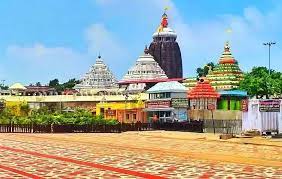Jagannath Temple Act, 1954:

In a historic decision, the Odisha state cabinet has approved amendments to the Sri Jagannath Temple Act of 1954.
- In the year 1806, the then British government had issued regulations for management of the Jagannath temple which was referred to as the Juggernaut temple by the colonial rulers.
- Under these regulations, pilgrims who visited the temple were expected to pay taxes.
- The British government was entrusted with appointing senior priests at the temple.
- The powers of management of the temple were passed on to the King of Khordha after three years while the colonial government continued to retain some control.
- After India gained Independence, the Jagannath Temple Act was introduced in the year 1952, which came into effect in 1954.
- The Act contains provision on land rights of the temple, duties of the sevayat (priests), administrative powers of the Shri Jagannath Temple Managing Committee, rights and privileges of the Raja of Puri and other persons connected with the management and administration of the temple.
Recent Amendments:
- The power will now be delegated to temple administration and concerned officials for sale and lease of land in the name of Jagannath temple.
- Unlike earlier, no approval will be required from the state government for the process.
- The Section 16 (2) of the act states that no immovable property taken possession of by the temple committee shall be leased out, mortgaged, sold or otherwise alienated except with the previous sanction of the State Government.




